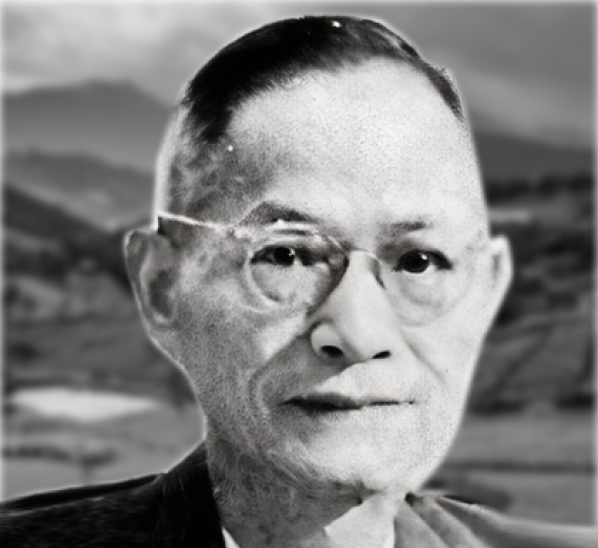- A leading educator, he was chosen to head a new government entity to carry out a rural reconstruction program under the joint efforts of the Chinese and Americans in the late 1940’s.
- The Commission evolved a formula that successfully catalyzed efforts in improving and increasing agricultural productivity, while implementing land reform.
- Social justice goals were pursued as organizations of farmers undertook processing and marketing of their produce as well as the maintenance of irrigation canals. Farmers were assisted to manage their own health clinics as well.
- The Board of Trustees recognizes his distinguished leadership of the Chinese and American Commission that has been largely instrumental in bringing about significant improvements in the rural life of his countrymen.
Nearly ten years ago, Dr. CHIANG MON-LIN was chosen to be the Chairman of a new government entity, created to formulate and carry out a program of rural reconstruction in China. To this end, he and his colleagues in the Chinese and American Joint Commission on Rural Reconstruction evolved a “formula” that has been notably successful.
On Taiwan, evidences of the JCRR’s catalytic influence may readily he observed in increased and improved agricultural production. Equally important, the JCRR has helped to insure social justice through effective land reform and through organization of farmers to process and market their produce, to maintain their own health clinics, their irrigation canals and otherwise to enrich rural life.
Though the accomplishments of the JCRR are the work of more than one man or a few men, Dr. CHIANG, as its Chairman, has provided a balance that has been vital to its success. Formerly one of his country’s leading educators, he brought to government service a broad, humanitarian view that has contributed toward an unusual tolerance and flexibility and yet a high degree of selectivity in the organization he has led.
Like Ramon Magsaysay, he has set for his associates a high standard of government service. His yardstick for personal effort has been achievement of goals for the public good rather than reward.
In naming CHIANG MON-LIN to receive the first Ramon Magsaysay Award for Government Service, the Board of Trustees recognizes his distinguished leadership of the Chinese and American Commission that has been largely instrumental in bringing about significant improvements in the rural life of his countrymen.
It has been said civilization is but a lengthening shadow of its great men. How true it is. But the idea of a great man changes its meaning as times change. In the 19th century, a great man may have meant an empire builder, no matter in what field of endeavor he was engaged.
In the middle of the 20th century, after two world wars, a great man must be a great leader of the common man.
So it was with Ramon Magsaysay. Such a leader knows no national boundaries. His influence extends to every corner of the four seas.
With such an understanding, I come here to receive the Ramon Magsaysay Award. In a deeper sense, I come here to pay my humble tribute to this great leader rather than to receive the honor bestowed upon me and my colleagues in the Sino-American Joint Commission on Rural Reconstruction.
In another sense, the work of the Joint Commission on Rural Reconstruction falls in line with the spirit of Ramon Magsaysay — to work for the benefit of the largest number of people in the rural districts.
May my colleagues and myself take this opportunity to express our gratitude to the members of the Foundation for conferring upon us this great honor.
I thank you.
(Note: Salutations preceding all Responses have been omitted.)

